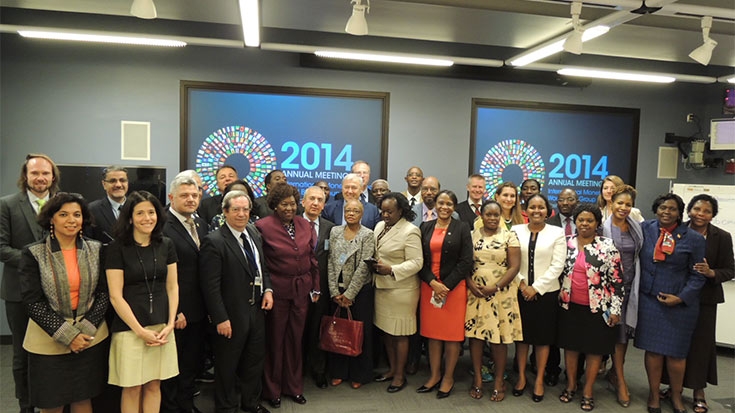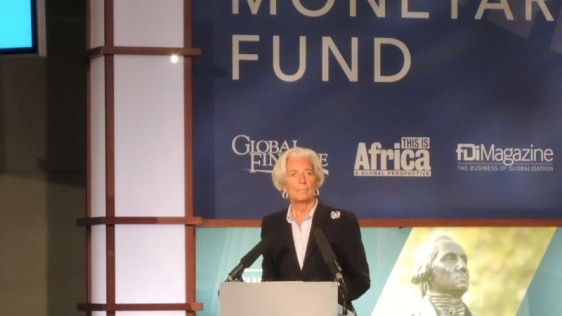Washington, D.C. – In a time of great global economic uncertainty, Members of Parliament (MPs) from across the globe convened for a workshop with high-level staff from the World Bank & International Monetary Fund (IMF) during 8-10 October in Washington, D.C. The workshop was held in the midst of the Annual Meetings for the two development organizations, as the PN sought to continue fostering dialogue between local actors and development partners in the knowledge-sharing process. The event was hosted by The Parliamentary Network on the World Bank & IMF (PN) and Women In Parliaments (WIP), which for the first time, partnered with the Network. Half the participants were women, highlighting the importance of inclusive, gender-equal leadership and development today. MPs learned how the World Bank & IMF serve as a resource of expertise and investment, while also having the forum to discuss ways in which a more comprehensive relationship would yield inclusive, good governance practice.
The Parliamentary Network’s Role in Inclusive Development
The international delegation of MPs from the Parliamentary Network and World Bank/IMF officials gave great attention to the role that MPs can play in carrying out missions of crucially shared importance. Cyril Muller (Vice President, External and Corporate Relations, WBG) noted that a new approach has commenced. The Bank now asks of a challenge, “Who in the world has solved this specific problem and how did they do it?” The message is clear: MPs have the opportunity to be a conduit for global change. Whereas one Executive Director for the IMF remarked that in the past, “it was unheard of for the IMF to meet with parliamentarians,” Several speakers stressed MP engagement with World Bank & IMF projects, simply because good governance is a key in inclusive development. As Mario Marcel (Director of Governance Practice, WBG) put it, “The better parliaments work, the better governance will be”.
Another important moment for the Parliamentary Network occurred when MPs and Former Congressman Jim Kolbe sat down for a breakfast session to discuss the role of the US Congress in international development. Mr. Kolbe gave what parliamentarians described as an “exceptional” presentation, giving insight into how the development agenda is legally prefaced, who are the main actors today, and what challenges the US Congress will have in the near-future. The discussion was lengthy, giving MPs the opportunity to discuss freely their opinions and ideas with Mr. Kolbe. He felt certain that the Parliamentary Network should reach out to Congressional Staff who possess institutional knowledge in aiding the process of further PN – Congressional engagement in the future.
Keynote Session on the Challenges of Job-Rich and Inclusive Growth
Madame Christine Lagarde (Managing Director, IMF) made opening remarks of this session, stressing the subpar, mediocre nature of growth around the world. She noted how international growth has become uneven and brittle, citing concerns of global (200 million people, 30 million since the Great Recession), youth (13% worldwide, equating to 75 million young people), and women’s (46% cannot find a in the Middle East job) unemployment. A Panel of the world’s renowned economists discussed how to achieve robust and sustained growth. Issues such as urbanisation were brought to the forefront, as Paul Romer noted, “Cities are worth more to than they cost to build”. Further, the lack of leadership was stressed by former President Ernesto Zedillo, carrying Madame Lagarde’s comments into his own; “our growth perspectives are mediocre because policies are the same”. The discussion section had plenty of questions from MPs, asking how they can do to bring about change and shared prosperity to their respective countries.


